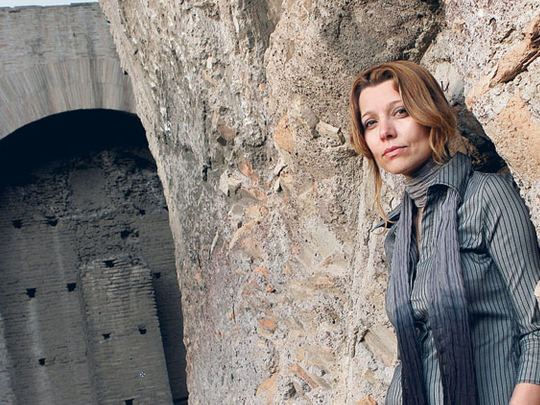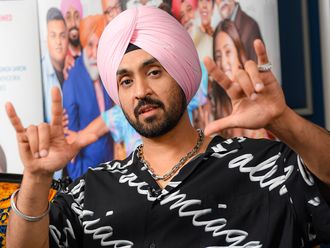
Three months before her first child was born, Elif Shafak, Turkey's leading female novelist, found herself facing prosecution and a potential three-year prison sentence. Her crime? She was accused of insulting "Turkishness" in her novel, The Bastard of Istanbul, through a character whose ancestors had been murdered in the Armenian genocide.
On the day of the trial, protesters inside and outside the courtroom jostled and slapped at the defendants — dozens of Turkish writers and intellectuals shouting and throwing objects at them.
The case was eventually dropped, only to be taken to a higher court. The trial took place a few months later. Shafak had just given birth and was not present. After a 40-minute hearing, she was acquitted.
After the case, Shafak fell into a postnatal depression that lasted for several months. Were the two linked, the legal ordeal and the postnatal depression? "I don't want to make too much of it," is all she will say, four years on. "The book was very well received, sold well and was read by a wide range of people — people who wouldn't normally break bread together. I gave readings, talks, book signings all over Turkey. People in England see only a very small part of the picture. Turkey is a complex, diverse society."
Shafak, 38, is clearly more comfortable finding other explanations for her postnatal depression. "I had led a very nomadic life before having children. I hadn't lived in the same house for more than a year, 18 months, my whole life. I'd lived out of suitcases. ... Becoming a mother, I had to learn to become settled. But you can't ignore a book. It needs your full attention. When I had my children, I had to change the rhythm of my writing." She stops for a moment, then adds with wry understatement: "There was a period of panic."
Shafak produced a powerful autobiographical novel about her experience of postnatal depression. "I called the book Black Milk because it shows that mother's milk is not always as white and spotless as society likes to think it is. And because out of that depression I was able to get inspiration. Out of that black milk I was able to develop some sort of ink."
Shafak's children are now 3 and 2. "Motherhood has not slowed me up as a writer but it has changed me," she says. Does the idealisation of motherhood make it harder for women in Turkey than in Britain? Shafak ponders the question. "Motherhood is so sacred in Turkey. It must be perfect. There is no room for ups and downs."
But she also thinks that the experience is different for each generation and that perhaps the adjustment to motherhood is harder for women with intellectual and professional aspirations. "I grew up with two different models of womanhood: that of my mother, who was an educated working woman, very cultured and modern, and that of my grandmother, who was much more traditional, superstitious, religious. Women such as my grandmother were, perhaps, better prepared for motherhood in some ways."
Her husband, Eyp Can, a journalist, has been a vital support. They share a commitment to an egalitarian marriage and his involvement with the children is essential to her ability to maintain a balance between writing and bringing up children. Already something of a celebrity in Turkey, Shafak is having an increasing impact on the international literary scene. She has a reputation for blending Western and Eastern elements in her fiction and in her journalism she is a bold and outspoken critic of her country's politics. She is seen by many critics and readers as an exciting, innovative, politically challenging writer. Besides having won many literary awards in Turkey and abroad, she has a large and devoted readership.
Perhaps, too, her readers love her because she writes about things that touch so directly on their lives. Her new novel, The Forty Rules of Love, already a bestseller in Turkey, is concerned with questions of motherhood and selfhood.
If love is one of Shafak's themes, Sufism is the other. She first became interested in Sufism as a college student in her early twenties and it has reverberated through her writing and her life ever since. In The Forty Rules of Love it takes centre stage as both theme and subject matter.
"The more you read about Sufism, the more you have to listen. In time I became emotionally attached. When I was younger I wasn't interested in understanding the world. I only wanted to change it, through feminism or nihilism or environmentalism. But the more I read about Sufism, the more I unlearnt. Because that is what Sufism does to you, it makes you erase what you know, what you are so sure of. And then start thinking again. Not with your mind this time but with your heart."
Sufism, motherhood, writing: Shafak feels she has found a way to align these three vital elements in her life. "Writing is very lonely work. A novelist for years lives in an imaginary world, creating characters, killing them. It is very self-centred. It's a job that requires a big ego. But in Sufism there is no hierarchy. No one is superior to anyone else. Motherhood has changed me. Each book changes me and makes me a different person."








